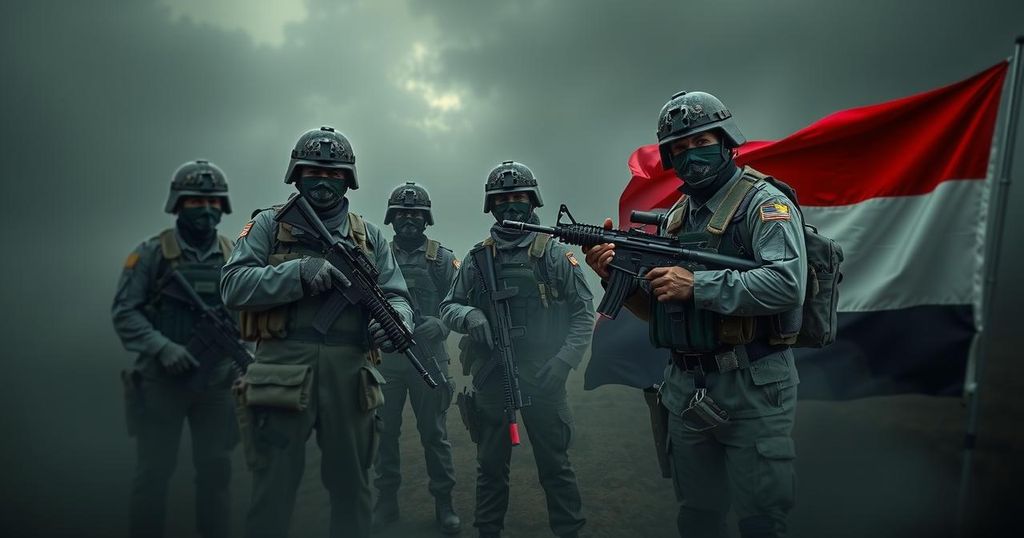Harakat Hezbollah al-Nujaba, an Iraqi militia, is coordinating with Iran to undertake strikes against Israel, following remarks from Iranian leadership promising a strong response to Israeli attacks. These developments raise concerns for the Iraqi government, struggling to manage internal and external relations amid increased regional tensions between Iran and Israel.
Haidar al-Lami, a member of Harakat Hezbollah al-Nujaba’s political bureau, disclosed in an interview with the Hezbollah-affiliated Lebanese newspaper Al-Akhbar that the militia is coordinating with Iran on strikes against Israel. Al-Nujaba, which the United States has designated as a terrorist organization, claims to be working alongside Iran to orchestrate effective responses to Israel’s military actions. Al-Lami asserted that Iran has the authority to target Israeli interests from Iraqi territory, reaffirming the ongoing operational commitment against Israel by the so-called “Islamic Resistance.” In the wake of Iran’s Supreme Leader Ayatollah Ali Khamenei’s promise of a “crushing response” to Israel’s recent aggression, including an attack on Iranian military infrastructure, Al-Lami interpreted Israel’s actions as a blatant violation of Iraqi airspace and international norms. The emphasis on utilizing advanced missiles reflects a significant escalation in planned conflicts, motivated by perceived ineffectiveness of diplomatic solutions. Concerns are mounting within the Iraqi government regarding these developments. Prime Minister Mohammed Shia al-Sudani’s administration is cautious of regional escalations that could disrupt relations with both the United States and Iran. Meanwhile, groups such as Kataib Hezbollah and Al-Nujaba have cautioned against any governmental attempts to provoke a cessation of their activities. An unnamed official highlighted a dilemma faced by the Iraqi government; any retaliatory action from Iranian forces using Iraqi territory might justify Israeli strikes, further complicating Iraq’s diplomatic landscape. Iraqi officials are apprehensive. Coordinated responses to potential Iranian retaliation would necessitate engagement with the Iraqi government, which is currently endeavoring to avert conflict while maintaining stability in a fraught geopolitical situation. In summary, the emerging liability for Iraq consists of managing the delicate balance of regional alliances and conflicts, particularly regarding Iran’s military ambitions in response to perceived threats from Israel.
Tensions between Iran and Israel have escalated significantly, especially following recent military confrontations. Iraqi militias, notably those affiliated with Iran, have increasingly sought to assert their influence and capability to target Israeli interests, capitalizing on Iran’s strategic support. The complexity of Iraq’s political situation is highlighted by the lack of diplomatic relations with Israel, complicating its ability to navigate this regional conflict while managing its ties with both Iran and the United States. The threat of escalating violence poses serious implications for Iraq’s stability and international standing, as local militias may act independently of the government’s diplomatic efforts.
The coordination of Iraqi militias with Iran poses significant challenges for the Iraqi government, which aims to maintain stability amid rising tensions between Iran and Israel. The statements made by militia leaders signal a readiness for retaliation, potentially complicating diplomatic relations with both Iran and the United States. As these armed groups express their intentions to escalate military operations, the Iraqi government must navigate the intricate dynamics of geopolitical alliances while striving to prevent further conflict involving its territory.
Original Source: www.jpost.com






